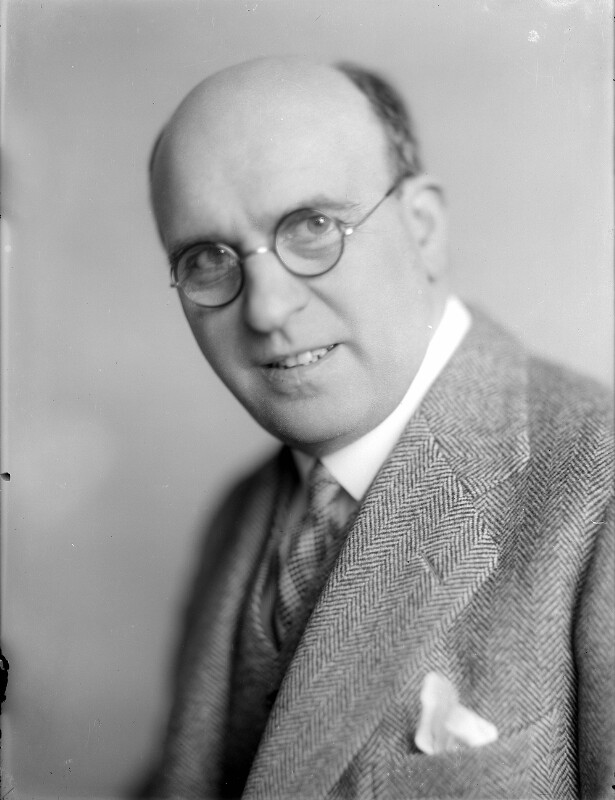Fritz Löhner-Beda
(Wildenschwert/Ústí nad Orlicí, Bohemia 1883 – Auschwitz 1942): “O Buchenwald, I cannot forget you”
The librettist of the Buchenwald Song in Auschwitz
Fritz Löhner was born Bedřich (= Friedrich) Löwy in Wildenschwert, Bohemia, on 24 June 1883. The family moved to Vienna in 1888, and about a decade later officially changed their surname to “Löhner”. Fritz Löhner studied law, obtained his doctorate in 1908 and initially worked as a freelance writer, mostly under the pseudonym Beda, alongside his work at a law firm. In addition to his sketches, poems and satires, he contributed to several newspapers and magazines and was the in-house poet of the cabaret venues Hölle, Fledermaus and Simplicissimus. He was also a passionate footballer and a founding member and first president of the Viennese sports club Hakoah in 1909.
In 1910 he wrote his first libretto; from 1916 he worked with Franz Léhar and was also a screenwriter for silent films. In 1918, at the age of 34, he was called up for military service. Although he reached the rank of officer, he his experiences turned him into a strong opponent of war.
After the First World War, his career reached its peak: under the name Löhner-Beda he became the most important pop song lyricist in the German-speaking world, a much sought-after librettist and star of German-language entertainment in the 1920s and 1930s. In collaboration with various co-authors, such as Alfred Grünwald, Ludwig Herzer, Victor Léon and Franz Léhar as well as Paul Abraham as composer, he created operetta classics such as Das Land des Lächelns, Giuditta, Viktoria und ihr Husar and Die Blume von Hawaii. His most famous hit, Dein ist mein ganzes Herz, which he dedicated to his second wife – his first marriage had been divorced in 1925 – Helene, née Jellinek, also comes from Das Land des Lächelns. In 1934 he became Vice-President of the Austrian Society for Authors, Composers and Music Publishers and through his work for Oscar Teller’s “Jewish Political Cabaret” came under the scrutiny of the Nazis.
On 13 March 1938, immediately after the “Anschluss” of Austria to the German Reich, Fritz Löhner-Beda was arrested and on 2 April he was deported to Dachau concentration camp aboard the so-called “celebrity transport”. From there he was transferred to Buchenwald concentration camp on 22 September 1938, where he remained until 1942. During his imprisonment in Buchenwald, he wrote the lyrics to the “Buchenwald Song” composed by Hermann Leopoldi, a march that accompanied the prisoners as they entered and left the camp:
“When the day awakens, before the sun shines,
the columns pull
into the graying morning to the day's trouble.
And the forest is black and the sky red,
and we carry a piece of bread in the bread sack and in our
hearts, in our hearts, worries.
O Buchenwald, I cannot forget you
because you are my fate.
Whoever left you can only appreciate
how wonderful freedom is!
O Buchenwald, we don't moan and complain,
and whatever our fate,
we still want to say yes to life,
because one day the day will come: then we are free!
And the blood is hot and the girl is far away,
and the wind sings softly, and I love her so much,
if true to her, yes, she would only remain true!
And the stones are hard, but our step is firm,
and we carry picks and spades with us
and in our hearts, in our hearts love.
O Buchenwald, I cannot forget you ...
And the night is short and the day is so long,
but a song sounds that the homeland sang:
we will not let our courage be robbed.
Keep up, comrade, and do not lose heart,
for we have the will to live in our blood
and in our hearts, in our hearts we have faith.
O Buchenwald, I cannot forget you ...”
On 17 October 1942, he was taken to Auschwitz concentration camp and imprisoned at Auschwitz III-Monowitz. There he was made to carry out forced labour at the IG Farben Buna factories. On 4 December 1942, at the age of 59, he was beaten to death at the factory. His wife Helene and his two daughters were deported to Minsk in 1942 and murdered at the Maly Trostinez extermination camp.
In 1960, “Löhnergasse” in the 12th District of Vienna was named after Fritz Löhner-Beda.
Literature and sources
Barbara Denscher, Helmut Peschina, Kein Land des Lächelns. Fritz Löhner-Beda 1883–1942. Eine biographische Annäherung an einen der bedeutendsten Wegbereiter der deutschsprachigen Unterhaltungskultur, Vienna 2002.
Günther Schwarberg, Dein ist mein ganzes Herz, Göttingen 2002.
Entry on Fritz Löhner in: Österreichisches Musiklexikon online, https://www.musiklexikon.ac.at/ml/musik_L/Loehner_Fritz.xml

